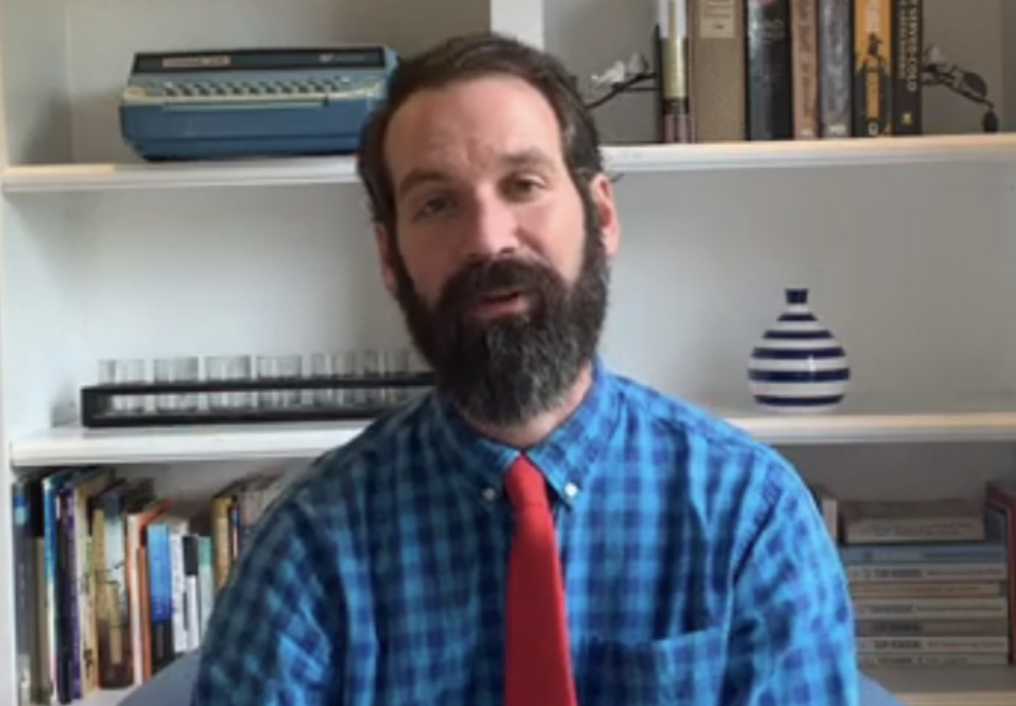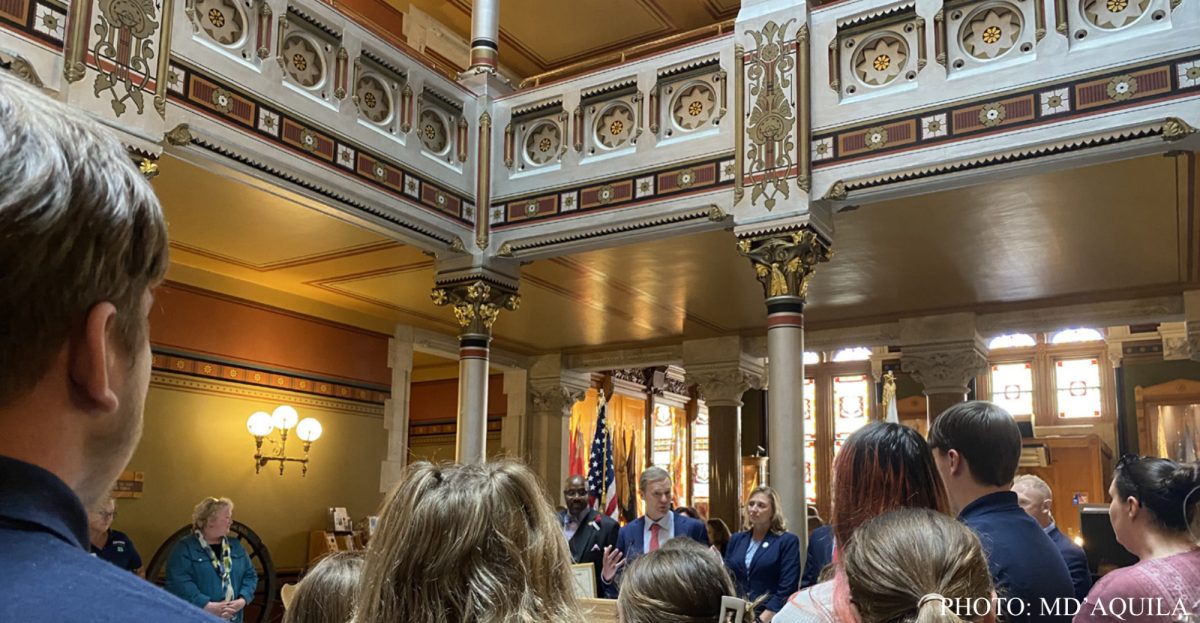The pandemic has also greatly impacted the mental health of many teachers in ELHS
QUINN DWYER
In the past two years, students faced many struggles as the pandemic piled more stress on to their already sagging shoulders. The shock waves were felt not just in the student population, but teachers as well.
“Teachers and students are stressed in a lot of the same ways,” English teacher Ryan Ainscough said.
Teacher mental health has plummeted in the last two years according to the National Institute of Mental Health.
With continued online schooling and COVID-19 surges, teachers have new and challenging tasks added to an already difficult job, such as managing multiple classrooms online, grading a variety of in-person an online work, and creating different forms of tests and lesson plans.

“It’s like getting another full time job on top of another full time job,” said history teacher Matthew LaConti. “I feel as if I have double the work, whether it be planning, grading, or helping out kids.”
Teachers have learned as much as students have in the past two years. Google Classroom went mainstream, and teachers had to adapt to a new way of teaching.
“It went from standing in front of a class to standing in front of a bunch of blank screens,” said Mr. LaConti. “It also got me worried for the kids already flying under the radar before COVID-19 how much this would affect them.”
History teacher Jennifer Raub taught completely virtually during the 2020-21 school year, she struggled in ways she never had before.
“That open communication I had in school was gone and it was a really big shift,” Ms. Raub said. “I went from teaching to sitting at a desk all the time and it was a nightmare.” The stress still hasn’t disappeared, and with a recent COVID spike in January, fears were at an all time high. The administration has tried to address these concerns by introducing mental health training for teachers.
“Prior to the school year we had experts come in and talk to us about mental health in the classroom. I found it very helpful,” said Mr. Ainscough. “We had sessions where they talked to us about how important it is to prioritize mental health, especially after a pandemic.”
With no de facto solution and no clear end to the pandemic in sight, the administration is limited in what it can do.
“I believe the administration is doing the very best they can considering the circumstances,” said Mr. LaConti.
“I know a few teachers through my family and all of them are completely overwhelmed, and kids should understand the stress of them as well,” said Rolando Martinez, a therapist at Pathways in East Lyme.
As teachers struggle to keep up, many have turned to professional help just as students do.
“They’re some of the hardest workers out there and whatever we can do to help we should do it,” Mr. Martinez said. “Education is vital to the future.”
The music department has faced many changes and hardships as well. Marching band was forced to compete virtually and concerts were planned with COVID-19 and social distancing in mind. In 2020, all concerts were virtual, with students recording their parts and teachers piecing them together into a harmonious video. This was a burden shared by all music teachers which was a large drain last spring. However, there’s still been a push to retain normalcy. This has taken a toll on music teachers as they scramble to adapt.
“Aside from obviously having a new band director, I would say we’ve done a decent job of staying the course. The biggest effect I’ve seen is the huge drop in choir enrollment,” choir director Anthony Maiese said.
Having to plan concerts has been a big source of stress for Mr. Maiese and the music department.
“Last year was terrible. We got a lot of positive feedback from the community about our virtual concerts. It ended up sounding and looking really cool, but for the students it was awkward and difficult to make the recordings. Putting the videos together was also a nightmare for the teachers,” Mr. Maiese said.
Like students, teachers have found ways to relieve stress and maintain a good work-life balance.
“I’ve kicked up my running, and it’s been an absolute godsend for me, and I’ve also purchased a mountain bike recently and that has also been great,” Mr. LaConti said.
“I’ve gotten back into playing video games lately,” Mr. Maiese said. “It’s such an effective distraction because it occupies my brain with something that doesn’t actually matter at all. I try to exercise and spend time with my family and my dogs as well.”
An important factor to good mental health is always a good work-life balance. It’s something students and teachers have to keep in mind.
“COVID or not, I’ll be here for a long time teaching because education is the key that will help solve every future problem, and I want to be a part of that,” said Mr. LaConti.








